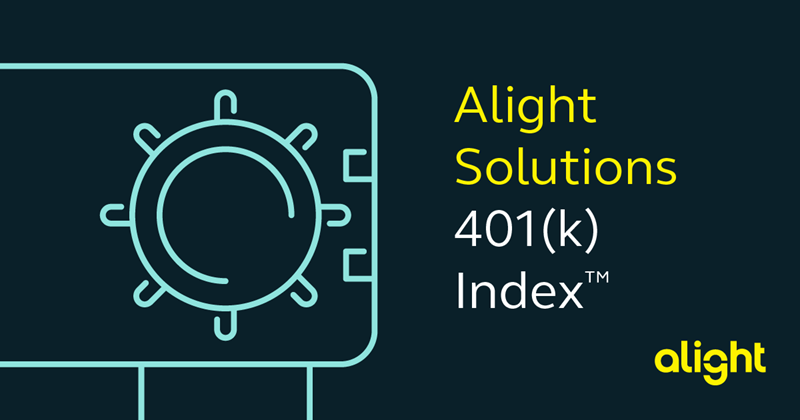
Steady losses on Wall Street throughout 2022 saw 401(k) investors seek the safety of fixed income investments, according to the Alight Solutions 401(k) IndexTM. Net trading activity for the year was 1.27% — higher than 2021’s level of 0.53% but lower than 2020’s level of 3.52%. There were 41 days of above-normal1 activity, compared to three in 2021.
“Throughout the more than 25-year history of the 401(k) Index, we have seen people increase their trading activity when stocks drop — a trend that continued in 2022,” said Rob Austin, head of research at Alight. “More than three-quarters of the above-normal1 trading days (33 out of 41) happened during the first half of the year when the markets were down by 20%. Trading slowed in the second half as Wall Street tried to rally.”
401(k) investors remained bullish on equities with most contributions going to target date funds2, and large cap U.S. equity funds. However, the equity losses resulted in people ending 2022 with 68.2% of their portfolio in equities compared to 70.7% at the beginning of the year.
Asset classes with most trading inflows in 2022 | Percentage of inflows | Index dollar value ($mil) |
| Stable value funds | 76% | $2,537 |
Money Market | 15% | $503 |
| Bond Funds | 8% | $254 |
Asset classes with most trading outflows in 2022 | Percentage of outflows | Index dollar value ($mil) |
Target date funds2 | 53% | $1,769 |
Large U.S. equity funds | 16% | $541 |
| Company Stocks | 12% | $405 |
Asset classes with most contributions in 2022 | Percentage of contributions | Index dollar value($mil) |
Target date funds2 | 47% | $4,942 |
Large U.S. equity funds | 21% | $2,229 |
International funds | 7% | $762 |
Percentage of balances by asset class
| Asset class | Year end 2022 | Year end 2021 | Change |
| Money market | 1.0% | 0.8% | 0.2% |
| Stable value | 9.6% | 7.7% | 1.9% |
| Bond | 7.4% | 7.0% | 0.4% |
| Balanced | 1.6% | 1.7% | -0.1% |
| Target date funds2 | 29.9% | 29.6% | 0.3% |
| Large cap U.S. equity | 25.7% | 27.5% | -1.8% |
| Mid cap U.S. equity | 4.9% | 5.2% | -0.3% |
| Small cap U.S. equity | 3.2% | 3.5% | -0.3% |
| International | 6.9% | 6.7% | 0.2% |
| Emerging markets | 1.0% | 1.4% | -0.4% |
| Specialty/sector | 0.4% | 0.4% | 0.0% |
| Company stock | 6.2% | 6.0% | 0.2% |
| Self-directed brokerage | 2.3% | 2.6% | -0.3% |
| |||||||||||||||||||||
| |||||||||||||||||
The following table shows the returns of major market indices for the year ending December 31, 2022:
Returns for common indices | 2022 |
Bloomberg Barclays U.S. Aggregate Bond Index | -13.01% |
S&P 500 Index | -18.11% |
Russell 2000 Index | -20.44% |
MSCI All Country World ex-U.S. Index (net) | -16.00% |
1 A “normal” level of relative transfer activity is when the net daily movement of participants’ balances, as a percent of total 401(k) balances within the Alight Solutions 401(k) Index™ equals between 0.3 times and 1.5 times the average daily net activity of the preceding 12 months. A “high” relative transfer activity day is when the net daily movement exceeds two times the average daily net activity. A “moderate” relative transfer activity day is when the net daily movement is between 1.5 and 2 times the average daily net activity of the preceding 12 months.
2 Target date funds also include the amounts in target risk funds. The amount in the target risk funds is less than 10% of the total.

Want to know more?
Check out our previous reports
